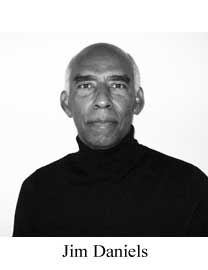
The #MeToo Movement – What You Need to Know
by Jim Daniels
Twenty-five years ago, when there was no MeToo Movement and women were barely able to see around the door into the spaces occupied by white male power in organization after organization, they knew what is was to be subjected to the constant flow of sexual innuendo and disrespectful off-color remarks, and even unwelcome touching.
They were cajoled into silence. Back then, I was often assigned to investigate the claims placed by those women victims. I did this in both the corporate work place and academia. Sexual harassment like racial harassment is primarily and almost exclusively the conduct of men. Men who are feeling their oats and believe with power comes the right to “express” oneself. Sexual harassment can travel a continuum from demeaning unwelcome comment to unwelcome contact to sexual violence and rape. The latter can carry serious criminal sanctions.
In giving thought to this month’s column and the topic that has dominated the civic space, I remembered that the Bible has two extreme sexual assault episodes and they are cases of rape. I am careful to point out that the Bible presents mankind in all their flaws as well as their commendations.
It is the account of Tamar who was raped by her half-brother, Amnon. Her brother Absalom killed him, and incited a rebellion against his father, King David. The rape was neither covered up nor ignored. Instead, it was answered and avenged. The cases of rape in Scripture tell us something about the cases of rape we are hearing today: These women must be heard; they must be allowed to express their revulsion of what they have experienced, and they must be protected.
Tarana Burke, a black woman, is the original creator of the #MeToo campaign that has taken over social media and brought women into the streets. Burke, who is the founder of a youth organization, Just Be Inc., created the “Me Too” campaign in 2007. She told Ebony Magazine that she created the campaign as a grass-roots movement to reach sexual assault survivors in disenfranchised communities. “It wasn’t built to be a viral campaign or a hashtag that is here today and forgotten tomorrow,” she said, “It was a catchphrase to be used from survivor to survivor to let folks know that they were not alone and that a movement for radical healing was happening and possible.” Burke told Ebony that it’s “powerful” to see the hashtag go viral. “What’s happening now is powerful,” she said. It is powerful because it became the catalyst for women to go public with their experiences of shame and exploitation by powerful men. Men be they Hollywood mogul Harvey Weinstein, or CBS chairman Leslie Moonves, or PBS interviewer Charlie Rose; men who presented themselves as entitled to another woman’s body.
The claims made against Brett Kavanaugh by Professor Blasey Ford, even long ago and occurring while he was a teenager, merit serious consideration regarding his elevation to the Supreme Court precisely because she alleges attempted rape. By joining behavior to a neat, catchy expression, MeToo became a gargantuan, mobilizing force for women demanding recompense for the harm done to them.